
Nicholas Blondin, MD, discusses the latest advancements in immunotherapy for brain cancer as well as emerging strategies, including CAR T-cell therapy.

Your AI-Trained Oncology Knowledge Connection!


Nicholas Blondin, MD, discusses the latest advancements in immunotherapy for brain cancer as well as emerging strategies, including CAR T-cell therapy.


Most central nervous system events with lorlatinib were grade 1 or 2 in the phase 3 CROWN trial.

An independent data safety monitoring board determines that the phase 2b SURVIVE trial in newly diagnosed glioblastoma may continue without modification.

The FDA designation follows an orphan drug designation granted by the European Medicines Agency for THE001 in patients with soft tissue sarcoma.

Nicholas Blondin, MD, provides an in-depth discussion on the evolving role of immunotherapy in the treatment of primary and metastatic brain tumors.

Advances in next-generation sequencing and gene expression are reshaping T-cell lymphoma classification and the use of targeted therapies.


Treatment with lorlatinib did not increase cardiovascular events among patients with ALK-positive non–small cell lung cancer in the CROWN trial.
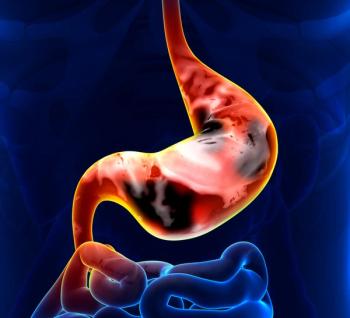
The safety profile of TFOX was consistent with data reported in previous studies, and no new safety signals were identified.
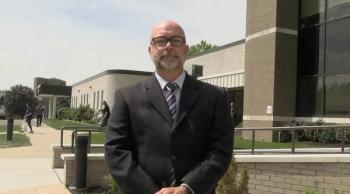
Having all the necessary staff together, from medical oncologists to pharmacists, helps deliver the best possible outcomes to patients with cancer.


At 5 years, 60% of patients who received lorlatinib in the phase 3 CROWN study achieved progression-free survival.
!["Policy changes aimed at supporting and more broadly enabling breastfeeding, addressing structural barriers, and promoting a culture shift could reduce overall incidence and racial disparities in TNBC incidence in the [US]," according to the study authors.](https://cdn.sanity.io/images/0vv8moc6/cancernetwork/c33b85fa4b3edf9bdd0a6d37d81eee57f71a7348-1200x960.jpg?w=350&fit=crop&auto=format)
Policy changes supporting breastfeeding may address structural barriers and lower overall incidence and racial disparities surrounding TNBC in the US.

Joseph C. Landolfi, DO, CPE, and Michele Morrison, MPH, BSHA, RN, discuss how they can use their leadership roles to improve cancer care.

At the time of analysis, the median progression-free survival was not reached with fruquintinib plus capecitabine in a phase 1/2 trial.

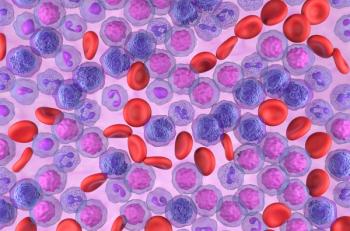
Phase 2 data support the potential of revumenib to advance the standard of care for patients with relapsed/refractory NPM1-mutated acute myeloid leukemia.
!["[G]iven the improvements in compliance and tolerability of the de-escalated regimen in older patients, with preserved early cancer outcomes, this reduced-dose regimen could be considered a new treatment option for [patients who are] frailer [and] not fit for standard-dose chemoradiotherapy," according to the study authors.](https://cdn.sanity.io/images/0vv8moc6/cancernetwork/8987adec8367653dbaf8fc0f82c7dbfcb914281e-500x404.jpg?w=350&fit=crop&auto=format)
Phase 2 data indicate that reduced-dose chemoradiotherapy may be tolerable among patients with early-stage anal cancer.

Data from the POTOMAC trial evaluating durvalumab in NMIBC will be presented at a future medical meeting and shared with global regulatory authorities.
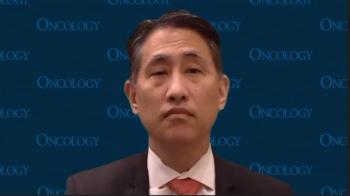
Findings from prior studies, such as the phase 3 VISION trial, may support the notion of combining radiopharmaceuticals with best supportive care.

Leaders of a new cancer center, which is part of JFK University Medical Center, discuss how they can support frontline clinicians.
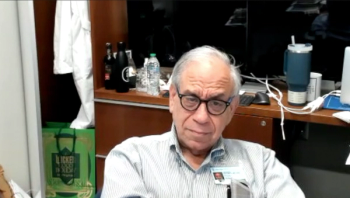
CAR T-cell therapy initially developed for mantle cell lymphoma was subsequently assessed in marginal zone lymphoma.


Survival data with eftilagimod alfa plus pembrolizumab compare favorably with historical results seen with standard-of-care therapies in this population.

Patients with MSS tumors diagnosed with metastatic CRC did not experience enhanced OS outcomes with frontline ICI therapy compared with chemotherapy.

Findings from the phase 2 RAMP 201 trial support the FDA approval of avutometinib plus defactinib in low-grade serous ovarian cancer.

The phase 2 Actuate 1801 part 3b trial results evaluating elraglusib with GnP in metastatic PDAC will be presented at the 2025 ASCO Annual Meeting.
!["Early [concurrent] CRT provides a significant survival benefit, while late [concurrent] CRT is an acceptable option," according to the study authors.](https://cdn.sanity.io/images/0vv8moc6/cancernetwork/fc2a0cb8c6d287fa539f7d61aad18a8752d347dc-1200x882.jpg?w=350&fit=crop&auto=format)
Whole-brain prophylactic cranial irradiation appears to confer minimal overall survival benefits in those with limited-stage small cell lung cancer.

Investigators of the phase 1/2 CFT7455-1101 study have determined cemsidomide at a dose of 100 µg safe for expansion.